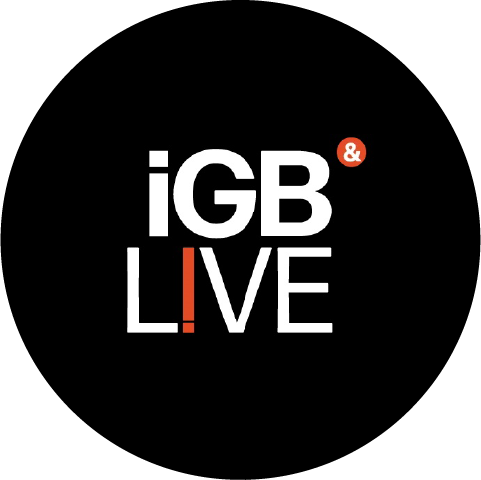Are you tired of worrying about regulatory reporting requirements for your licensed entity? We can take that burden off your shoulders. We understand that recurring overviews to regulators are necessary for doing business in most jurisdictions. That is why we offer reporting services that cover everything from financial reports to technical audits and customer/supplier reporting.
Requisites vary widely depending on your country of licensing and your specific license. That is why our team stays informed about the latest regulatory requirements and can help you navigate this complex landscape.
Our team of experts liaises between you and the licensing authorities to ensure that all required reports are submitted on time and according to local requirements. We pride ourselves on our attention to detail and ability to provide tailored solutions that meet your reporting needs.
LET US HELP YOU TAKE THE STRESS OUT OF REGULATORY REPORTING.
Regulatory reporting is a vital component of the financial services industry, serving as a bridge between financial institutions and regulatory bodies. Its primary purpose is to ensure adherence, facilitate risk management, and promote transparency and accountability. Financial institutions can modernize their reporting process, improve transparency, and ultimately enhance effectiveness by adhering to regulatory reporting requirements and leveraging robust software systems. With the ever-evolving regulatory landscape
In financial institutions, regulatory reporting is critical in ensuring they align with industry standards and government regulations. This process involves creating and submitting regulatory reports, which contain essential data and information that regulators use to oversee and monitor the operations of banks, firms, and other financial entities. In this article, we will explore what regulatory reporting is, its intentions, and why it is of utmost importance in the financial services sector.
Regulatory reporting refers to the systematic process of collecting, analyzing, and documenting data to fulfill reporting obligations mandated by regulatory authorities. It involves preparing and submitting reports that provide insights into a financial institution's operations, risk exposure, financial performance, and adherence to specific regulations. These reports act as a means of communication between financial institutions and regulators, enabling the latter to assess the overall health and stability of the market.
The intentions of regulatory reporting are multifaceted. Firstly, it aims to ensure that financial institutions adhere to applicable laws, rules, and regulations set by government authorities. By doing so, regulatory reporting helps maintain market integrity, safeguarding stakeholders' interests, such as customers, investors, and the general public. Secondly, these overviews facilitate risk management by providing regulators with crucial data to identify potential threats and take necessary actions to mitigate them. Furthermore, regulatory reporting promotes transparency and accountability within financial services, instilling confidence in the market.
Regulatory reporting encompasses different varieties of reports, each serving a specific purpose. Some common types include financial, transaction, prudential, and compliance reports. Financial overviews provide a comprehensive overview of a financial institution's financial position, including balance sheets, income statements, and cash flow statements. Transaction reports detail individual transactions, allowing regulators to detect and investigate suspicious activities such as money laundering or fraud. Prudential overviews focus on assessing a financial institution's capital adequacy, liquidity, and risk management frameworks. Lastly, compliance reports demonstrate a firm's adherence to specific regulatory requirements, such as anti-money laundering guidelines or data protection rules.
It is essential to note the distinction between financial and regulatory reporting. While financial reporting is primarily geared towards external stakeholders, such as investors and shareholders, regulatory reporting is designed to meet the specific requirements of regulatory bodies. Financial reporting aims to give a comprehensive view of a company's financial performance and position, following standardized accounting principles. On the other hand, regulatory reporting goes beyond economic data and covers a broader range of information that regulatory authorities need to monitor, assess and make informed decisions.
The significance of regulatory reporting cannot be overstated, especially in fast-paced and highly regulated financial services. Firstly, it ensures that financial organizations adhere to applicable rules and guidelines, minimizing the threats of penalties, fines, or reputational damage resulting from not being compliant. Secondly, regulatory reporting provides regulatory authorities with the tools and insights to effectively oversee the market, identify emerging threats, and implement measures to maintain market stability. Additionally, it promotes transparency and accountability, enhancing trust among customers, investors, and other stakeholders. By objectively measuring a financial institution's performance and risk exposure, regulatory reporting enables regulatory authorities to make informed decisions that protect the interests of the broader market.
Financial organizations are turning to award-winning software solutions that revolutionize reporting to cope with the increasing complexity of requirements. This advanced software offers a comprehensive approach to managing regulatory compliance, enabling firms to efficiently create, generate, and analyze regulatory reports. By leveraging precise analytics and objective measures, these software solutions include critical elements for accurate and timely overviews. They enhance data management, facilitate seamless integration with existing systems, and reduce the costs and complexities involved in processes.
The implementation of advanced tools brings numerous benefits to financial organizations. These tools empower users with a business application that simplifies the process and ensures regulatory compliance. They enable banks and firms to determine the specific regulatory requirements that apply to them, generate comprehensive overviews, and complete them on time. By automating repetitive tasks and centralizing report data, these tools improve accuracy and efficiency, freeing up valuable time for other strategic initiatives. Financial organizations can rely on these innovative solutions to manage and comply with new regulations while maintaining the highest data quality and integrity standards.














